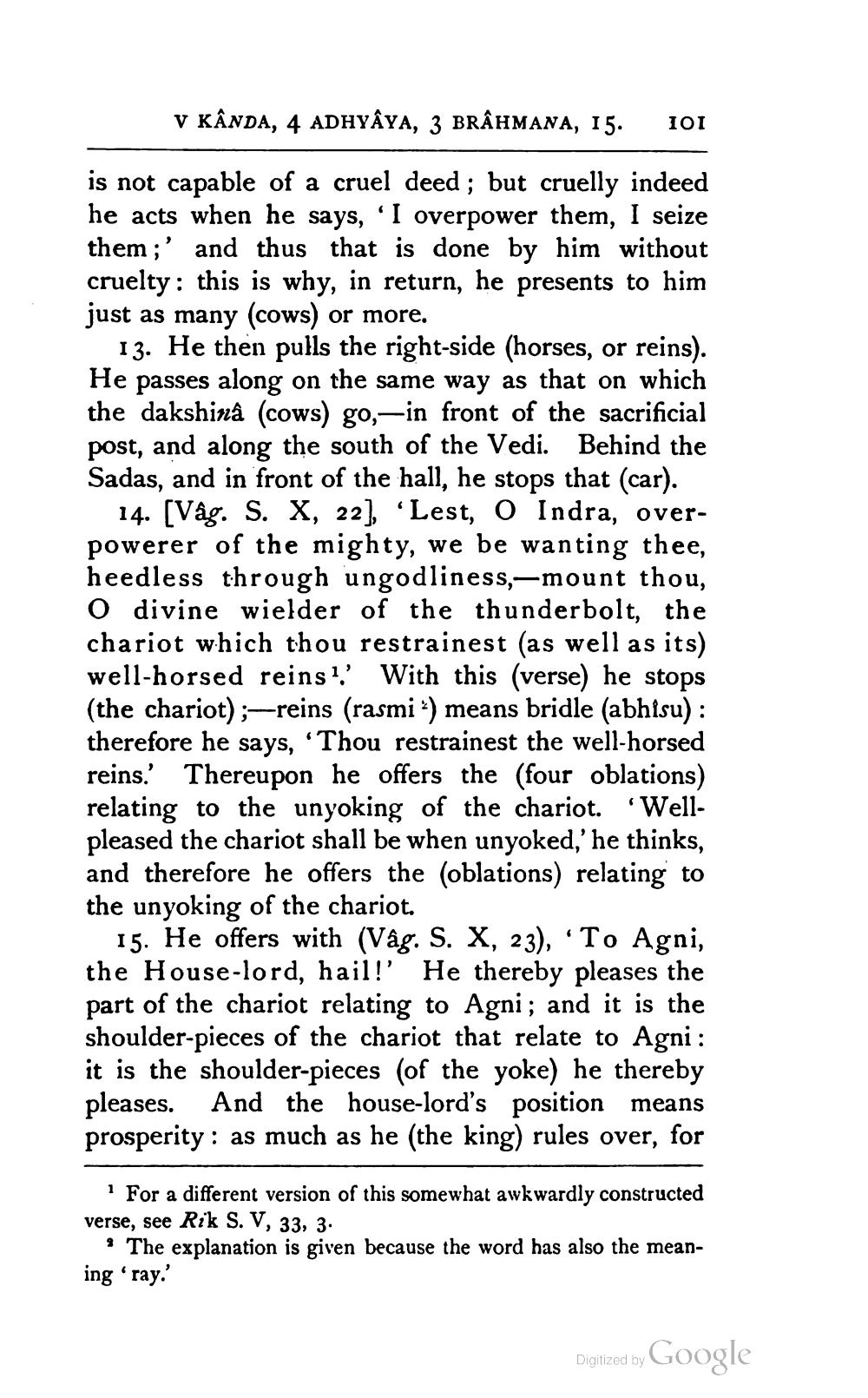________________
V KÂNDA, 4 ADHYAYA, 3 BRÂHMANA, 15.
101
is not capable of a cruel deed ; but cruelly indeed he acts when he says, 'I overpower them, I seize them;' and thus that is done by him without cruelty : this is why, in return, he presents to him just as many (cows) or more.
13. He then pulls the right-side (horses, or reins). He passes along on the same way as that on which the dakshina (cows) go,-in front of the sacrificial post, and along the south of the Vedi. Behind the Sadas, and in front of the hall, he stops that (car).
14. (Våg. S. X, 22), 'Lest, O Indra, overpowerer of the mighty, we be wanting thee, heedless through ungodliness,-mount thou, O divine wielder of the thunderbolt, the chariot which thou restrainest (as well as its) well-horsed reins?' With this (verse) he stops (the chariot);-reins (rasmi *) means bridle (abhisu) : therefore he says, 'Thou restrainest the well-horsed reins. Thereupon he offers the (four oblations) relating to the unyoking of the chariot. 'Wellpleased the chariot shall be when unyoked,' he thinks, and therefore he offers the (oblations) relating to the unyoking of the chariot.
15. He offers with (Vâg. S. X, 23), “To Agni, the House-lord, hail!' He thereby pleases the part of the chariot relating to Agni; and it is the shoulder-pieces of the chariot that relate to Agni : it is the shoulder-pieces (of the yoke) he thereby pleases. And the house-lord's position means prosperity: as much as he (the king) rules over, for
? For a different version of this somewhat awkwardly constructed verse, see Rik S. V, 33, 3.
9 The explanation is given because the word has also the meaning 'ray.'
Digitized by Google




